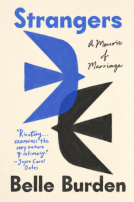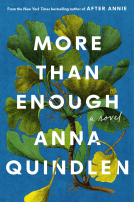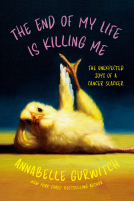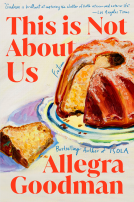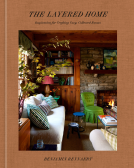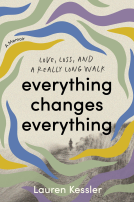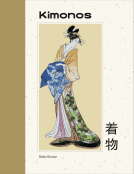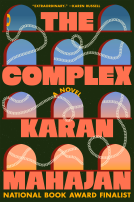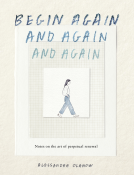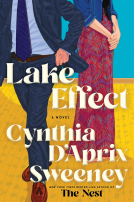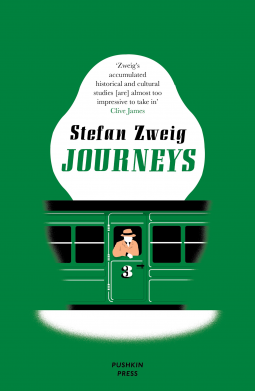
Journeys
by Stefan Zweig
This title was previously available on NetGalley and is now archived.
Send NetGalley books directly to your Kindle or Kindle app
1
To read on a Kindle or Kindle app, please add kindle@netgalley.com as an approved email address to receive files in your Amazon account. Click here for step-by-step instructions.
2
Also find your Kindle email address within your Amazon account, and enter it here.
Pub Date Sep 17 2019 | Archive Date May 07 2019
Talking about this book? Use #Journeys #NetGalley. More hashtag tips!
Description
When I am on a journey, all ties suddenly fall away. I feel myself quite unburdened, disconnected, free - There is something in it marvellously uplifting and invigorating. Whole past epochs suddenly return: nothing is lost, everything still full of inception, enticement.
For the insatiably curious and ardent Europhile Stefan Zweig, travel was both a necessary cultural education and a personal balm for the depression he experienced when rooted in one place for too long. He spent much of his life weaving between the countries of Europe, visiting authors and friends, exploring the continent in the heyday of international rail travel.
Comprising a lifetime's observations on Zweig's travels in Europe, this collection can be dipped into or savoured at length, and paints a rich and sensitive picture of Europe before the Second World War.
Advance Praise
'Zweig's accumulated historical and cultural studies [are] almost too impressive to take in' Clive James
'Zweig's accumulated historical and cultural studies [are] almost too impressive to take in' Clive James
Available Editions
| EDITION | Other Format |
| ISBN | 9781782274759 |
| PRICE | $16.95 (USD) |
| PAGES | 128 |
Average rating from 23 members
Featured Reviews
"And if the meaning of life consists in relentlessly discovering in the temporal and intellectual new forms of freedom, it is better perhaps to live with the least possible constraints, the art of leaving behind oneself, without sentimentality, a good portion of one's past."
Unlike typical travel writings, Zweig produces short and poignant essays, all set in Europe, that not only focus on specific places and topics, but also move through historical periods to observe and record significant points.
Stefan Zweig takes the reader on a tour of the pre-WWII Europe that he loved. A very good companion piece to "The World of Yesterday." A brilliant mind taken from a world that needed him by terrible events of his time.
 Abby S, Reviewer
Abby S, Reviewer
A personal intimate look through the authors eyes of Europe before ww11 a book to saver dip in and out of .His books always draw me in and I highly recommend. #netgalley #Pushkinpress.
Beautifully captured moments in time from Zweig, as he travelled around Europe before the Second War. There is a vibrancy to his prose that brings the places very much to life, his descriptions are detailed, and his moods throughout the writing are incredibly infectious.
A genuinely wonderful book to explore lost worlds.
Highly recommended.
With thanks to Netgalley and Pushkin for the ARC.
 Willy M, Reviewer
Willy M, Reviewer
There are few books that can totally answer and almost annul the problems and pressures of life in the Twenty-First century. But Zweig comes across to us in this book "Journeys" from a time where life was degenerating into a political world of lies where millions were thrown out of their homes to wander as refugees. The drum beats of global aggression were everywhere.And yet in this journey of a man to find the stillness of quiet and sanity gives a paradise where the reader may gently rest and renew themselves.
In the places he visits in Europe it is a journey of time and space to the heart of what is good in Civilization. This despised refugee hounded to his death by the populist rhetoric of Fascists, still speaks to us here as a clarion of sanity and comfort.
Zweig is the master of literary technique. His subtle observation, his disconnected sense of tragedy and hope and his remarkable description of visual detail all pile together to give you one of the best books you will read this year.
The man was fleeing in exile and yet you get a sense of a still quiet conscience that wills itself into being as a fortress of sanity. You seriously can't ask for better than this from any book. Its entertaining, informative and even heroic. To produce this book was a triumph, a triumph we all may share in.
 Hilary W, Reviewer
Hilary W, Reviewer
This is a selection of pieces from Zweig’s collection “Auf Reisen” selected by poet, and translator, Will Stone. The original publication dates of the chapters run from 1902 to 1940 and his “journeys” – by train – covered cities and towns across Europe. Some you might have visited in their current transformation possibly many not. A few seem slightly rushed travel pieces, others – see Hyde Park” (1906) – are deeply analytical at both an historical and spiritual level. All reflect on Zweig as the man - humanist, pacifist, deeply aware of European history, culture and literature – through the first World War and towards the Nazification of Europe and the second World War. The reader of Zweig will know that leaving Salzburg in 1934 to avoid political arrest he will become a “traveller” that will lead to his eventual exile, depression and death.
These texts while about individual places – presented as distinct, historic communities of people – together reflect a broader Europe and its culture. But some places are reported before the damage of the First War and others the further attritional damage of the Second. But they also show an earlier time and character – smaller (although some – Antwerp for instance - are recognised for their international links) and lacking the massive attritional changes of resident numbers, technological and transport developments and the impact of global consumerism. Behind that the pace was undoubtedly different and thought tells you the tenor of the places, particularly the aural experience too.
The importance of the pieces is the dialogue between the author and the reader; the requirement to read them quietly and slowly and measure them against what you know. Zweig values a city against its capacity to meld the natural landscape elements against its built environment – often languishing back over centuries. A city is not just buildings but its people and culture so he will link places to their writers and composers. But among the broader text he will drop sentences that quietly skewer the essence, or failures, of a place.
Too many cities to list individually – but two remain in memory – Ypres (yes, very “current”) identified as the “Ville Martyre” of Europe but with a text that reflects on the nature of the tourism of death and grief. Both of course different, but his response to the mass tourism marketing he details allows one to recognise what horrors Zweig would find in our modern cities now. Look, too, to Hyde Park (1906) – a deep analysis of place. A place that was used, a sanctuary from the “commercial streets” – another place. You will never see the Park in quite the same way again after reading this.
This book is one of the reasons why people read for pleasure and have book shelves to return to. This is not just about journeys to places, but to the past, to European culture to analysis of what is important in our communities and places around us, setting a marker of values.
 Jenny M, Bookseller
Jenny M, Bookseller
Zweig, as always, is masterful. I’ll be beside myself the day I finish plowing through his works.
Journeys is a sort of travelogue if his trips through Europe. His musings are insightful both into his own character and the world around him. He could have put together a collection on taking out the trash or having bowel movements and I’d read it. Zweig was a treasure.
 Librarian 431790
Librarian 431790
Stefan Zweig was a great writer and this book is no exception.
I loved this book and it gave tons of food for thought. The style of writing is brilliant as usual and his reflections are interesting and poignant.
Highly recommended!
Many thanks to the publisher and Netgalley for this ARC, all opinions are mine.
I was really pleased to have the opportunity to read and review this book, as I am a big fan of German Literature (especially Exilliteratur), but had never read anything before by Stefan Zweig. The book is a collection of his essays on his trips around Europe from 1902 to 1940, when he left Europe forever.
It took me a while to get into this book. I have visited most of the places Zweig writes about here, and initially I spent more time comparing my impressions of the places, than concentrating on what and how he was portraying them. I had loved Bruges – but found his depiction of the city (from about 100 years earlier) quite sombre and dismal:
“I was seized with a faint anguish about the notion of returning to this sepulchral town whose symbols embraced me with such power that I felt an infinite pity for these people who lived here in the shadows, inexorably on the path towards death, towards the incomprehensible.
It wasn’t until the more upbeat essay ‘Springtime in Seville’, which chimed with my experiences, that I began to pay attention to his writing, and enjoying both the excellent prose and the observations that he made.
“‘Quien no ha vista Seville, no ha visto maravilla’ – this proud aristocratic saying one hears until it becomes unbearable; and yet such vanity one can scarcely reproach. For is it not a miracle, when men and so many years of destiny reckon to build a town, and ultimately leave a smile drawn on the face of life?”
I found the imagery particularly beautiful in ‘Antwerp’.
There, they deposit from their wings the precious nectar, the goods. The cranes moan with pleasure when their fingers plunge into ships and exhume from the darkness objects of value drawn from distant lands. Now and then the wharves ring out with signals, great clocks hammer out an exhortation to the emigrants to exchange a last greeting, all languages of the earth resound together here. And at once you understand the sense of this town, too great for this small country: for it must be at the service of all Europe, of an entire continent
And in ‘Salzburg – The Framed Town’ the anthropomorphic description of the Salzach:
It’s an alpine river, small but rebellious, which in a mean mood can boil up during the melting period, impetuously crashing into the bridges and dragging along with it, by way of plunder, innumerable trees
I had spent a week in Chartres nine years ago, and every day went in the cathedral, each day finding something new and marvellous. I felt that Zweig perfectly captured the atmosphere of that amazing place.
“For one person or isolated individuals cannot create such marvels, which require whole centuries in order to exist properly, and for their immortality to ripen fully.”
“in answer they installed coloured panes in the caverns of the windows to lessen the burden of that grey light, allowing the sun to filter through all their colours, and so here too the myriad colourations of life made one sense even in this darkness a certain ecstatic bliss. These stained glass windows of Chartres are of a splendour without rival.”
“For this church had room for an entire generation and that is its heroic lesson, eternally big enough for all earthly aspirations, eternally able to exceed all possibilities and now forever a symbol of infinity”
There are three essays about places in England, and clearly Zweig was a fan of England and the English (at least until they locked him up as an ‘enemy alien’ at the outbreak of WWII). The first is ‘Hyde Park’:
“No – Hyde Park does not inspire dream, it inspires life, sport, elegance, liberty of movement.”
The book finishes with ‘House of a thousand Fortunes’ – a shelter for the dispossessed in London, which took care of hundreds of Jews fleeing the Nazis, among others:
“Adrift in the terrifying insecurity that has enveloped the lives of thousands like a glacial mist, at least for a few days he may feel the warmth and light of humanity – truly consoled at the heart of all this hopelessness he sees, he experiences it: that he is not alone and abandoned in this foreign country, no, rather he is linked to a community of his people and to the still higher community of mankind in general.
and ‘Wartime gardens’ that contrasts the ‘keep calm and carry on’ attitude of the English when war was declared in 1939, and the excited, holiday atmosphere in Vienna on the outbreak of WWI.
Zweig obviously loved travelling, but hated the new fashion of mass tourism, which he discussed in ‘Return to Italy’ (“more and more an invasion that washed ashore en masse the whole family of the provincial petit bourgeois”) and in ‘To Travel or be Travelled’:
“travel must be an extravagance, a sacrifice to the rules of chance, of daily life to the extraordinary; it must represent the most intimate and original form of our taste”
Zweig committed suicide in 1942, so he never got to see the horror of Ypres visited on Germany:
“Imagine if you will, to give comparison, a Berlin where the castles and the Linden were reduced to nothing but a smoking heap of debris”
But he also never got to see the European Union in all its glory, as “a new world that knows no national boundaries”.
This collection of essays gives a glimpse into the past – but is also a reminder of what we have now in the present, what we have lost and what we have gained, what has changed, and what still endures. Some of the essays I found very emotional – such ‘Ypres’ and ‘House of a thousand Fortunes’. Most of them, I really enjoyed.
I would like to read more by Stefan Zweig – perhaps even in German. But that is for another time.
 Reviewer 392033
Reviewer 392033
This is a tremendously interesting time capsule for the modern day. Following Zweig on his travels from the early 1900s to the middle of World War II, the reader is catapulted back in time and visualises a world much changed (but also barely changed at all). The back end of the stories here are fraught with the sense of war, which makes for a new and interesting take on the topic- anyone who values travel, global history and non fiction writing will love this.
 Richard L, Reviewer
Richard L, Reviewer
In more modern times we are used to travel blogs, guide books and celebrities outlining journeys in far off countries as well as familiar places. I have enjoyed many who have shared their experiences and made their journeys my own as I’ve been informed and encouraged to make such trips for myself.
None however has come close, even with the aid of television bringing the train or market produce alive to capturing the essence Zweig conveys.
Through a series of essays about places he visited this erudite and master of language brings place, people and politics into focus. He is outspoken but speaks with insight and the depth of all the arts. His prose is poetic and not a word is wasted.
Having been to Bruges and Ypres I found his words both familiar and illuminating. I wonder at my own poverty to see with such discerning regard. My vision is quite impotent compared to his insight and reflection. Yet through his words I brightened as my own experiences were honed and refocused.
I enjoyed his bemoaning of the loss of a hotel. I felt moved as he recounted the generations of people coming together over decades to build a cathedral - I loved his points about the transience of modern thinking and the witness of history in stone.
I was proud of the hostel providing brief respite in London for homeless Jews in London and the points he makes regarding comfort and reaching out to refugees.
The whole book is worth reading just for his critique of the modern tourist who is part of a coach party and fails to have a true personal experience. It echoed many of my own thoughts about packaged holidays against independent travel.
Here is an author who I hadn’t read. I am grateful to Pushkin Press for making this book available to me as here is a writer I will now seek out for their language and ability to help me realise why I too like to travel to new places and explore by myself.
Journeys is a collection of the author's observations made during his time travelling throughout Europe. The work is very detailed and quite enjoyable.
 Educator 554511
Educator 554511
Thank goodness for Pushkin Press. While interest in Zweig has increased since Wes Anderson's The Grand Budapest Hotel, there was never a guarantee that more of his work would become widely available to English speaking audiences. A indispensable volume for anyone interested in interwar literature.
Readers who liked this book also liked:
Annabelle Gurwitch
Biographies & Memoirs, Health, Mind & Body, Humor & Satire
Benjamin Reynaert
Arts & Photography, Home & Garden, Reference
Alessandra Olanow
Arts & Photography, Religion & Spirituality, Self-Help


